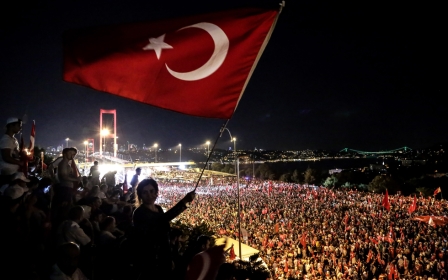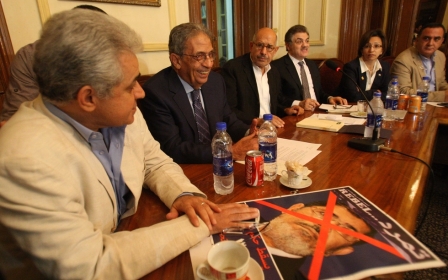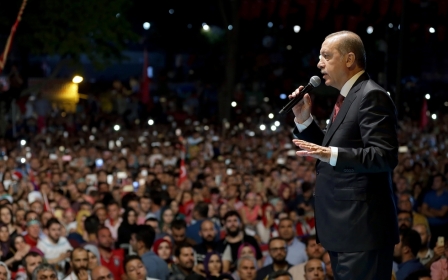The heavy cost and the historic opportunity of the failed Turkish coup

Two weeks ago, Turkey was subjected to a coup attempt that ended in failure. This is one of the few occasions where words do not describe what happened and do not assess its effects.
This is certainly true but insufficient to say that the coup failed. It presupposes a similarity between this failed coup and other failed coups in Jordan, Syria, Iraq and Venezuela during recent decades. The truth, however, was that the Turkish coup attempt was a huge operation, an operation that was not supposed to fail. Those who carried it out were so confident that they would be successful that they did not have a "plan B”.
The Turkish republic is of course the direct inheritor of the Ottoman Sultanate and the Turkish army is the descendant of the modern Ottoman army, whose origins are found in the immediate aftermath of the destruction and abolition of the Inkishari military system in 1826. Thus, the 15 July failed coup comes at the tail end of a series of coups: three coups were perpetrated by the Union and Progress Society in 1908, 1909 and 1913; then there were the direct and indirect coups perpetrated by the Republican Army in 1960, 1971, 1980 and 1997. All of these were successful coups that resulted in the seizure of power by the army or in the army toppling an elected government and imposing another in its place.
The 15 July putsch may have been the first coup project of such magnitude and resources that ended in failure - not just in Turkey but in the entire Middle East. The number of generals, of all levels of the rank of general and from within all the armed forces corps who were arrested within one week of the failed coup has reached 126. This figure represents about one third of all the generals in the Turkish armed forces. Through a quick and rough estimate, it can be said that this number of generals used to command between 150,000 and 200,000 soldiers of the total of 700,000 men serving in the Turkish armed forces.
Yet, the matter does not end here. The statement made early on by the Turkish president to the effect that Fethullah Gülen’s group stood behind the coup attempt, a statement that was later on confirmed personally by the chief of staff in the first interview he gave following his liberation from the hold of the coup perpetrators. This raised some doubts outside Turkey. However, the truthfulness of such an assessment has not only been increasing by the hour, but has almost become an indisputable fact. This is what makes the 15 July attempt an extraordinary affair in the tradition of military coups in Turkey.
This coup was not undertaken by a group of Kemalist officers under the illusion that the secular state or the unity of the country was under threat, or who assumed that the army was the maker, guardian and owner of the republic. This attempted coup was undertaken and led by a religious organisation, one that is gnostic in character and one whose vision of Islam, Turkey and the world is a mix of Sufi tributaries, elitist political inclinations and weird doctrines (Gulen’s followers learn that he is closer to them than the jugular vein.)
Gulen leads a project that aims to seize control of the entire world. Seizing control of Turkey would be the first step in the direction of accomplishing his global project. Since the early 1980s, when Gulen, the young charismatic clergyman, declared his support for the 1980 coup, the coup regime tolerated the hegemony-seeking activities of the group, which managed during the four following decades to set its roots in a carcinogenic fashion in all state institutions and in the public sphere: hundreds of private schools; thousands of weekend schools; 15 universities; thousands of business people, companies and banks; extensive penetration into the Turkish bureaucracy, particularly within the judiciary and the ministries of education and finance; huge media institutions, including newspapers, TV channels and internet websites; wide-ranging control over the police and domestic intelligence services; and a military organisation unprecedented in its size and spread across all the armed forces and gendarmerie corps.
Rooting out the Gulen group
This is what makes the coup attempt extremely costly, even in the aftermath of its failure. In order to put an end to the penetration of this group inside the institutions of the state and government, it is inevitable that the state must remove this secret organisation by its very roots. There is no doubt that the cleansing process will have repercussions of various effects on the state institutions as well as on Turkish society and the Turkish economy.
There will be some tumult within the armed forces and it will take some time before the military institution regains its capabilities. Since the armed forces have suffered a major blow as a result of their unprecedented clash with the people, it will be essential for the army to rebuild its image and its relationship with the Turkish people.
It is also expected that the coup attempt will have a broad impact on the educational sector, whether with regard to education in schools and universities or with regard to the situation of tens of thousands, or perhaps hundreds of thousands, of students. The situation is not so different with the case of the justice institution, whether in the judiciary or in the prosecution. Although the purging process has not yet reached the financial, business and economic sectors, it is known that scores of businessmen from among the followers of the group left the country in 2013. It is highly likely that pursuing the group’s members within these sectors and determining the nature of their properties and their connections to the group’s financial resources will begin soon.
In addition to that, the Turkey of the Justice and Development Party (AKP) has been coming under strategic, regional as well as international pressure since 2012. Not only regional states, whose policies contradict those of Ankara in the region, but also Western powers, including traditional ally the United States of America, have been actively involved in this. Hence, and despite the fact that the popular confrontation with the coup perpetrators presented an image of concord and unity within Turkey and its political sphere after years of sharp political polarisation, the size of the coup attempt, and the size of the secret organisation standing behind it, will generate an impression of instability.
Historic opportunity
On the other hand, the failure of the coup attempt provides a historic opportunity for the AKP government and for President Erdogan to rebuild the state and the relationship of the state with its people, and to bolster Turkey’s regional role. Since assuming the reins of power in the country toward the end of 2002, the Justice and Development government has undertaken a series of reforms across all the institutions of the Turkish state.
However, the majority of scholars who specialise in the Turkish republic know that the state is prone to authoritarianism, and the building of a free democratic system would require a radical reconstruction of the state's institutions, including the state’s judicial, military and security institutions. It would also require the rebuilding of the system of governance and the formulation of a new constitution.
But a reform project of such a size cannot be advanced covertly from behind the cloak of victory against the coup plotters. It would have to be achieved through popular and political concord. This is the challenge facing the leadership of the AKP and the leaderships of the other opposition parties. Perhaps Erdogan’s meeting with the leaders of the two main opposition parties on Monday, 25 July, was an extremely positive indication of a new political climate that is in the process of crystallising.
Since the coup attempt was not only targeting Turkey but was meant to put an end to the dynamic of democratic change in the entire Middle East region, the failure of this coup will contribute to rectifying the imbalance of power between the forces of revolution and change on the one hand and the forces of the counterrevolution on the other.
The forces of the counterrevolution in the region and their mass media were not wrong when they expressed their hasty pleasure at the success of the coup plotters. Nor were the peoples and their democratic inclinations wrong when they celebrated the failure and defeat of the coup attempt. This was not simply a Turkish event. This was an event that had as much to do with the destiny of the wider Middle East and the destiny and future of its peoples.
- Basheer Nafi is a senior research fellow at Al Jazeera Centre for Studies.
The views expressed in this article belong to the author and do not necessarily reflect the editorial policy of Middle East Eye.
Photo: An image of Turkish President Recep Tayyip Erdogan is seen through a Turkish flag during a rally against the military coup at Kizilay Square in Ankara, on 25 July, 2016 (AFP).
This article is available in French on Middle East Eye French edition.
New MEE newsletter: Jerusalem Dispatch
Sign up to get the latest insights and analysis on Israel-Palestine, alongside Turkey Unpacked and other MEE newsletters
Middle East Eye delivers independent and unrivalled coverage and analysis of the Middle East, North Africa and beyond. To learn more about republishing this content and the associated fees, please fill out this form. More about MEE can be found here.





